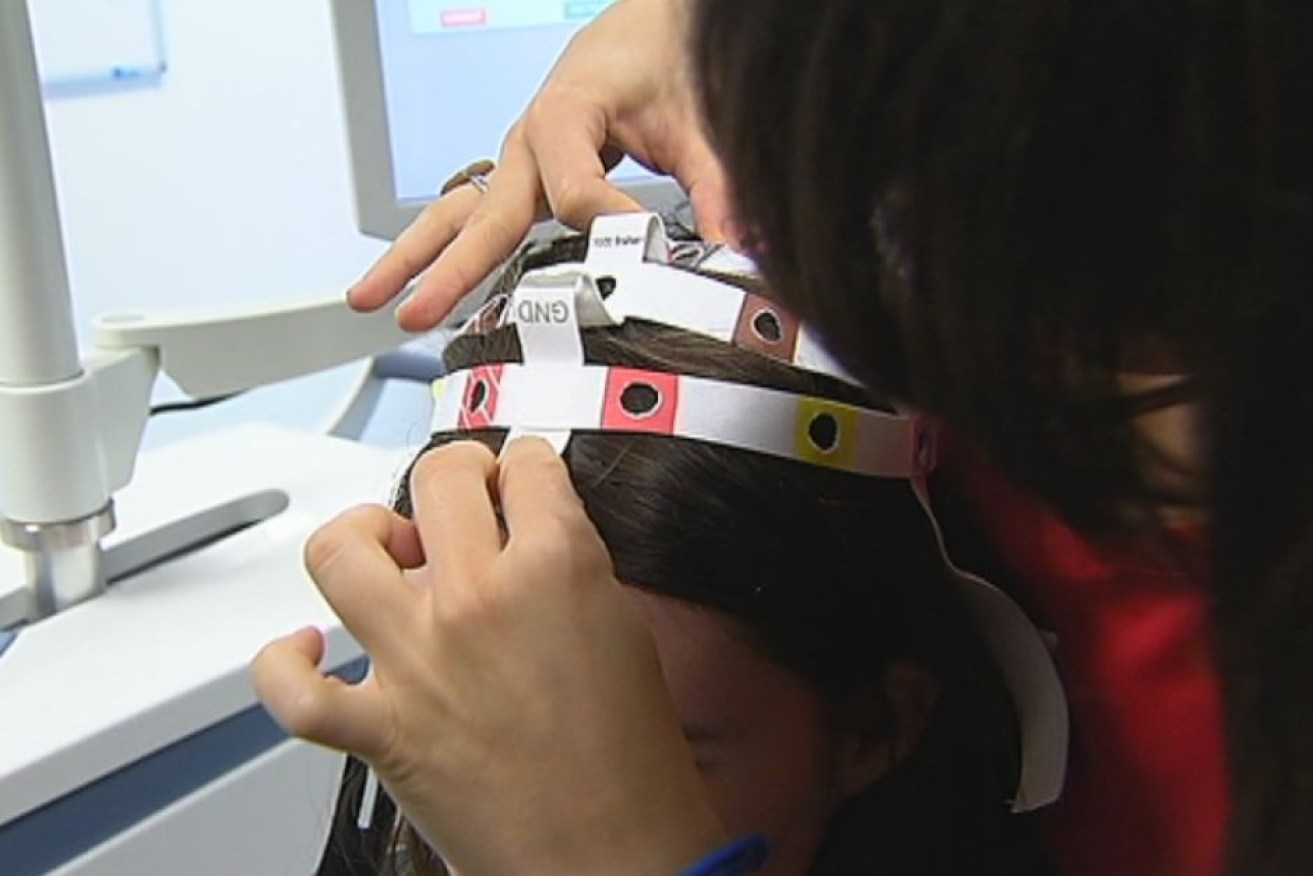Would you zap your kids into better results?

In a competitive world, some parents are prepared to do whatever it takes to give their child an academic edge, even if it means zapping their young brains with an electrical current.
For just a few hundred dollars, you can buy your own brain stimulation kit online.
Pop on the headset and, if you believe the marketing, you should see an immediate improvements in tasks like solving maths problems and learning a language.
Professor Colleen Loo from the Black Dog Institute has been researching what’s known as transcranial direct current stimulation (tDCS) for 20 years.
“Used in the right way it can make very useful changes to your brain functioning, but if you get it wrong – if you, for example, reverse the position of the two electrodes – you could actually have the opposite effect,” she said.
“I certainly wouldn’t recommend doing it to yourself at home.”
However, her colleague and fellow researcher Dr Donel Martin are concerned about online advertisements promising to get your child through a calculus test and even treat students suffering from attention deficit hyperactivity disorder (ADHD).
“There is some evidence to suggest maths ability and learning may be improved, but in order to do this we must stimulate certain parts of the brain in a certain way,” Dr Martin said.
“Devices like this where you just plonk it on your head, it’s really unclear what areas of the brain are being targeted.”
A study at the Britain’s Oxford University found that students performed better in mental arithmetic after their brains were zapped for five consecutive days.
Kits could have ‘unwanted and unexpected side-effects’
But Dr Martin cautions parents against experimenting on their children.
“There’s been very little research conducted in using these devices on children,” he said.
“Without medical supervision there could be unwanted and unexpected side effects.”
Dr Martin said in a clinical setting the dose of electricity and duration of treatment were carefully controlled.
At home, the dose was controlled by the user and there was evidence that people were wearing their brain stimulating devices for long periods at a time.
“There’s definitely a risk with people pushing the boundaries of what’s shown to be safe,” he said.
“If you push beyond those limits, we don’t know what the consequences are.”
In clinical trials, brain stimulation has proved successful as a treatment for depression.
There was now hope it could help in the rehabilitation of patients who have suffered brain injury or stroke.
“Yes, there is the possibility of using this form of stimulation to help promote plasticity and new learning,” said Dr Martin.
Trials were also under way into its use in the treatment of schizophrenia, eating disorders and post traumatic stress disorder.








